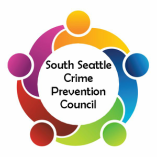Bullying
Bullying is most commonly defined as action or behavior that includes the following: 1) The intention to do harm to another or others; 2) repeated acts or threats of aggressive behavior; and 3) an imbalance of power or status between the bully and his/her victim(s). Bullying is expressed through physical aggression, psychological torment, and/or social sabotage such as the spreading of rumors. Research indicates that bullying has clear harmful effects for its victims as well as its perpetrators and that although most policy and press attention addresses bullying among children and teenagers, the sad fact is that anyone, of any age, can be a perpetrator or a victim of bullying.
Incidents of bullying are, unfortunately, increasing with the anonymity and rapidity of electronic communication through computers and smart phones; such internet or technology-based bullying is known as cyberbullying. Examples of cyberbullying tactics include "trolling" (posting inflammatory remarks online about sensitive subjects to instigate conflict) and "impersonating" (breaking into someone's online account to do things which defraud, defame, and damage that person's financial, private, and/or social life).
The following online resources provide useful information about children and bullying:
Information about cyberbullying and how to combat it may be found at:
Incidents of bullying are, unfortunately, increasing with the anonymity and rapidity of electronic communication through computers and smart phones; such internet or technology-based bullying is known as cyberbullying. Examples of cyberbullying tactics include "trolling" (posting inflammatory remarks online about sensitive subjects to instigate conflict) and "impersonating" (breaking into someone's online account to do things which defraud, defame, and damage that person's financial, private, and/or social life).
The following online resources provide useful information about children and bullying:
- the U.S. federal government's www.stopbullying.gov site
- the National Crime Prevention Council (NCPC) site www.ncpc.org/topics/bullying
- school psychologist Signe Whitson's site, www.signewhitson.com, features well-written articles and tips
- consult your local school district's website for its bullying policy; the Seattle Public School's address is seattleschools.org
Information about cyberbullying and how to combat it may be found at:
- the NCPC's webpage www.ncpc.org/topics/cyberbullying
- psychologist Ken Shore's article found at www.educationworld.com/a_curr/shore/shore078.shtml
- scholars Hinduja and Patchin's glossary of cyberbullying terms may be found at cyberbullyingbook.com/Cyberbullying_Glossary.pdf
- for information geared toward adults, refer to the article found at nobullying.com/adult-cyber-bullying/
